Prices in Argentina, where inflation is more than 100%, change daily, and the peso has lost so much value that people can't fit pocket money in their pockets because there's so much.
Few people know what $220,000 in cash looks like. But Ana, 50, does. She brought a backpack of her savings in dollars to buy land and build a house in Patagonia, Argentina, without a deposit or installments. Inside the backpack were 22 stacks of $100 bills stacked on top of each other.
"No one here takes out a bank loan. I saved for 20 years to buy that land," the former kindergarten teacher told ABC News . In Argentina, most people buy real estate with cash.
When asked about the safety of dealing with such large amounts of cash, Ana said: "It's always risky."
According to ABC News , this is just one of the strange stories in an economy that is experiencing inflation of more than 100% - the highest in the past 32 years. The biggest problem now is that it seems that no one cares about the price of anything anymore.
Prices here rise daily, to the point where by the end of the day, many people have no idea how much something costs. "You never shop in one place. You compare five or six supermarkets. It's like a treasure hunt, going here to buy eggs, going there to buy detergent. But in the end, you still buy it because you don't know if it's expensive or cheap," said Guido Mazzei, 39, a manager of rental apartments in Buenos Aires.
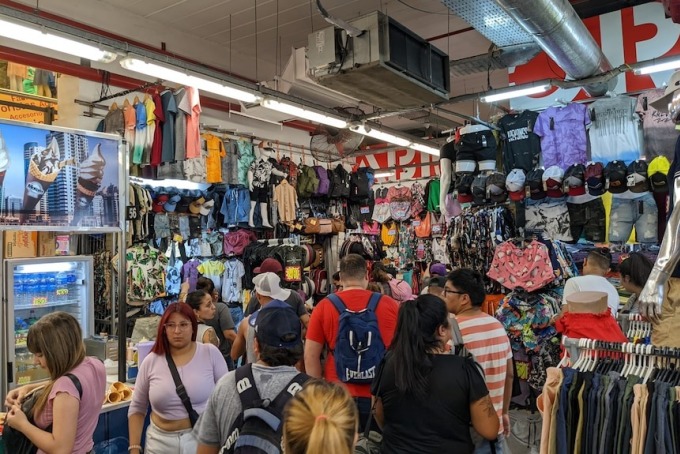
Crowded scene at a market in Argentina. Photo: ABC News
For sellers, life is no easier. Every month, Rudy Rindlisbacher, the owner of a steel company in the city of Trenque Lauquen, sits down with his son to adjust the prices of his products.
"It's complicated. There's no way to know how much the product will cost at the time of import. Big companies can hold onto the product and not put it on the shelves until they know the re-import cost. But small businesses like us have to sell continuously. We need to survive," he said.
Before the Great Depression of the 1930s, Argentina was among the top 10 countries with the highest GDP per capita in the world. However, since the 1950s, the country has been continuously in recession and bankruptcy.
Argentina has struggled with rising prices for the past 50 years. In the 1980s, inflation hit an unimaginable 3,000%. Since 2008, the country has recorded inflation of over 30% per year.
Argentines spend pesos as soon as they get them. They don’t trust banks, rarely use credit cards. And after years of inflation, they’ve forgotten what prices are supposed to be. Millions of Argentines have turned to the black market to get around government regulations on buying dollars.
Inflation in Argentina has the same causes as the rest of the world: the war in Ukraine, supply chain tensions and soaring public spending. But many economists say the problem lies within the country itself. The country is spending more than it earns. Health care, education, energy and public services are heavily subsidized or free. So to make up for the shortfall, they print more pesos.
The country's Economy Minister Sergio Massa has pledged not to require the central bank to print more money to finance public spending until 2022. The Argentine central bank also raised its benchmark interest rate to 97% earlier this week to combat inflation.
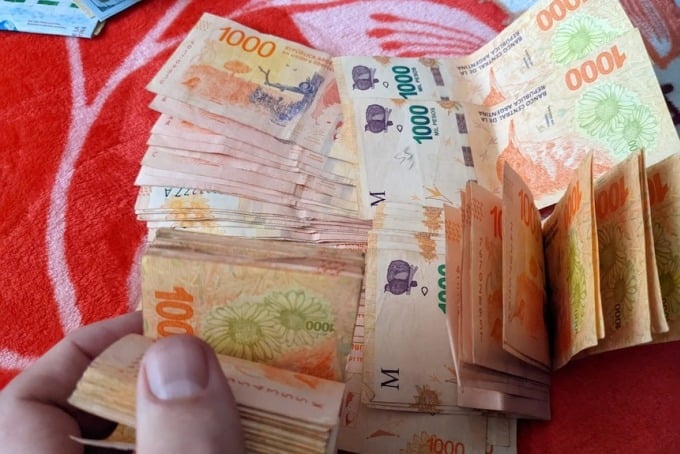
The 1,000 peso note is currently Argentina's highest denomination note. Photo: ABC News
Analysts remain divided on how to address the problem in Argentina. But most agree that the country lacks the political will. "It's important to understand the social dimension of this problem. Unfortunately, Argentina has such a long history of inflation that generations of people have seen 30% inflation as normal," said Adam Fabry, an economics professor at the National University of Chilecito.
However, Benjamin Gedan, director of the Argentina and Latin America Project at the Wilson Center, believes that triple-digit inflation will be a milestone for the economy. "It's true that Argentines are used to high inflation, but that's only 20-30%. 100% like now is really turning life upside down," he said.
Gedan said restaurants in Buenos Aires are often full, not because people are rich, but because they are 'quema la plata' (burning money). Many Argentines are spending money like the end of the world is near. They are buying everything from towels to TVs on installments.
"Houses are bought in cash, paid in full. But small items are bought in monthly installments over many years," Guido said. The reason is that Argentines believe that the peso will fall and their final installments will be worth very little, if converted into dollars.
Rudy bought a Toyota HiLux 1.5 years ago for 4.5 million pesos. It is now worth 12 million pesos. "The best way to save money is to buy stuff," he said.
To cope with inflation, Argentines are hoarding dollars. Many experts believe that Argentines hold more dollars than any other country in the world besides the United States. "It's not just wealthy businessmen, taxi drivers, grocery store owners who hold dollars," Gedan said.
These dollars are not kept in banks, where they would be worth only half their value at the official exchange rate. Argentines store them in old clothes, under mattresses, in walls, floors and in safes. Argentina’s largest denomination note, the 1,000 peso note, is now worth less than $2.40 on the black market. In February, the Central Bank of Argentina said it planned to introduce a 2,000 peso note.
Rudy had trouble stuffing enough pesos into his pockets for the day. "A lot of money for little value," he complained.
In recent years, more and more Argentines have sought to emigrate abroad. "Most of my friends and relatives are leaving Argentina. We are also applying for Italian citizenship. I want my children to grow up in a better place," said Vanesa Barrios, director of a mountaineering company in Mendoza.
But not everyone can afford to go abroad. The group most affected by inflation is the poor. “They don’t have unions, they work in informal sectors and they can’t negotiate their wages. Inflation can wipe out their earnings in a blink of an eye,” Gedan said.
Ha Thu (according to ABC News)
Source link




![[Photo] General Secretary and President of China Xi Jinping arrives in Hanoi, starting a State visit to Vietnam](https://vstatic.vietnam.vn/vietnam/resource/IMAGE/2025/4/14/9e05688222c3405cb096618cb152bfd1)

![[Photo] Prime Minister Pham Minh Chinh receives Chairman of Commercial Aircraft Corporation of China (COMAC)](https://vstatic.vietnam.vn/vietnam/resource/IMAGE/2025/4/14/93ca0d1f537f48d3a8b2c9fe3c1e63ea)









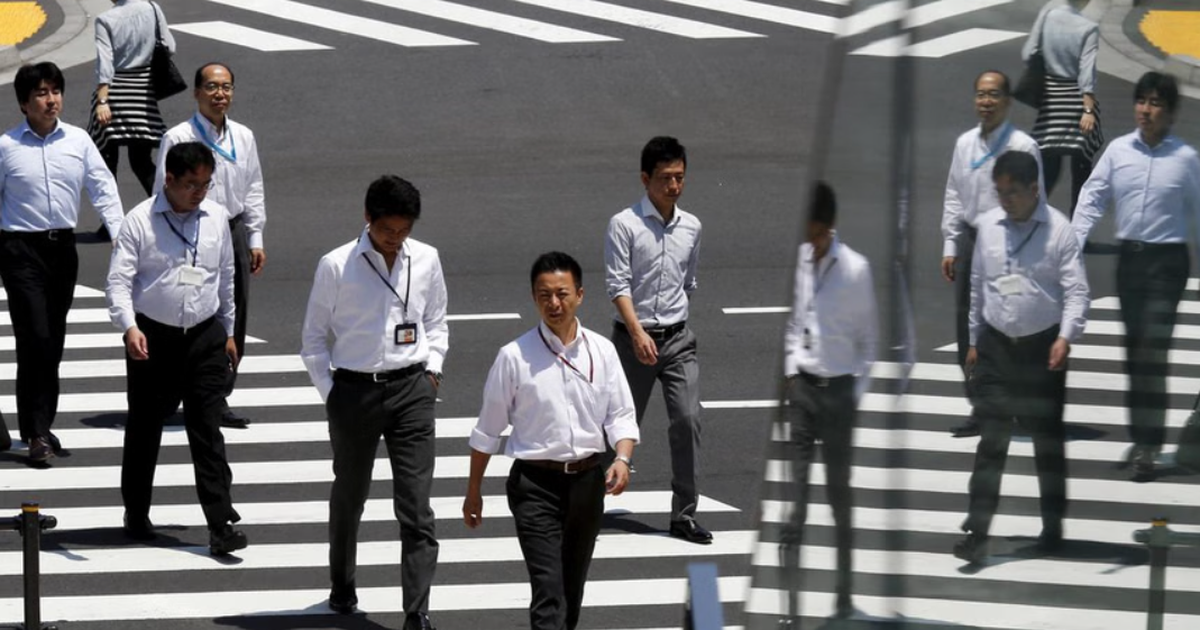


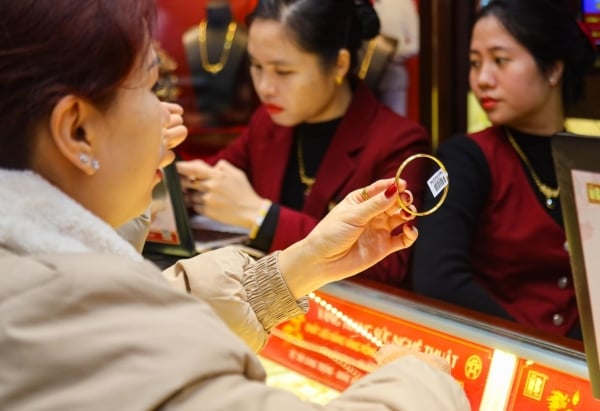






























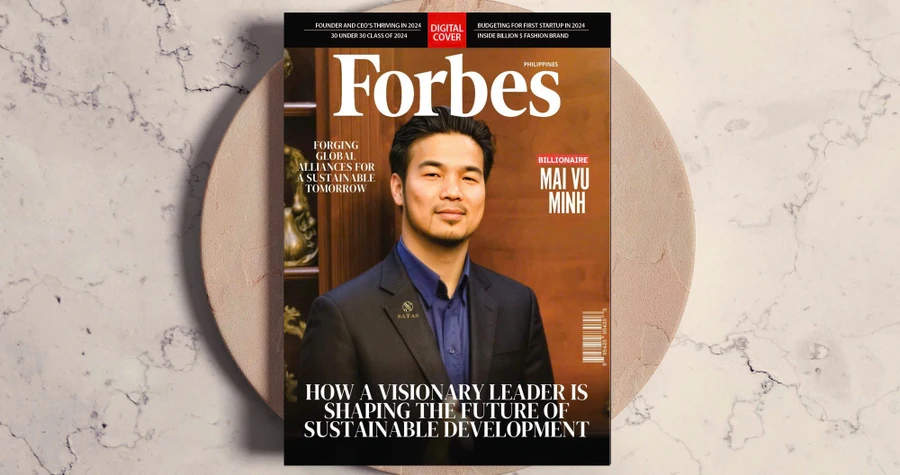














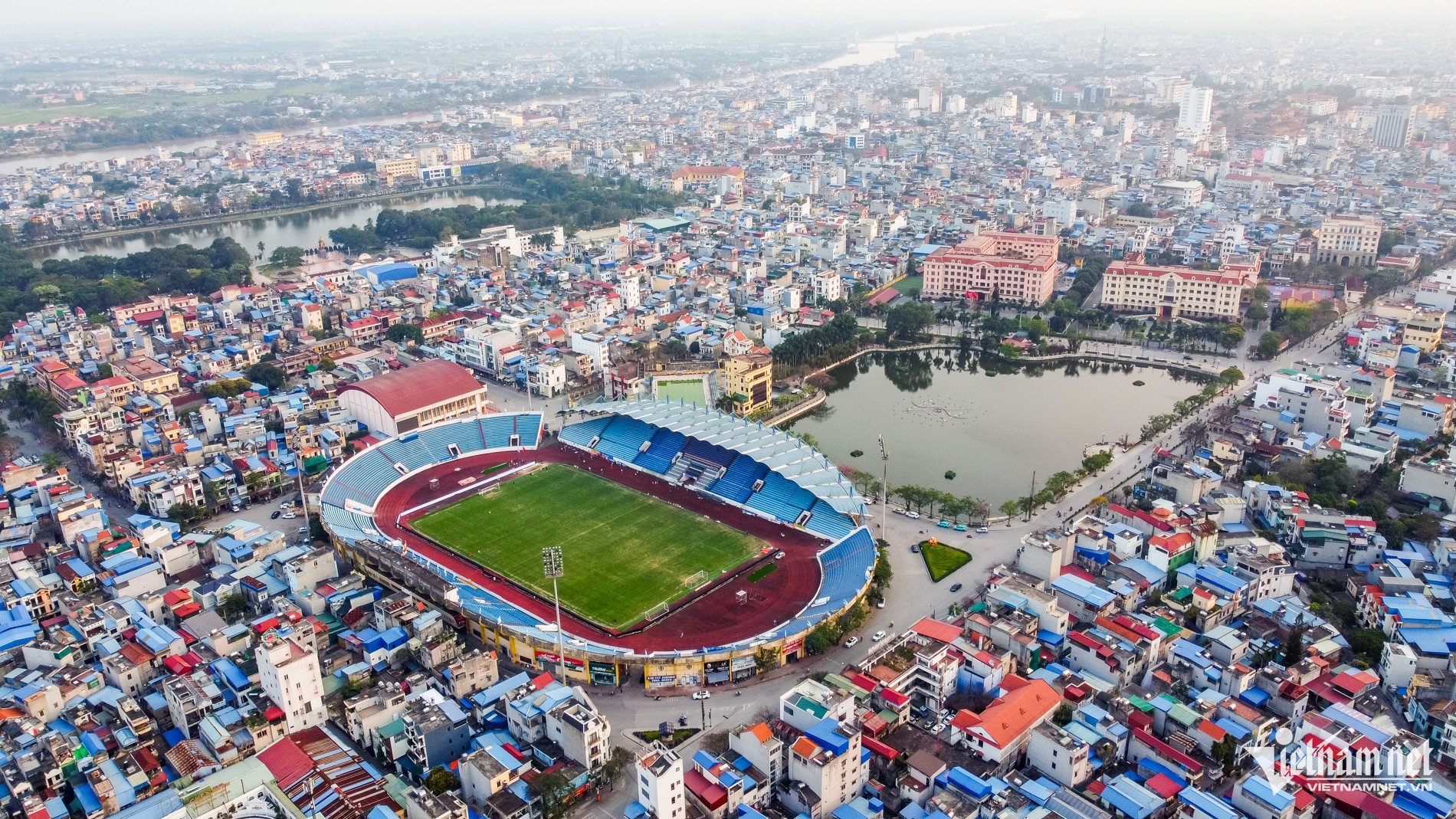



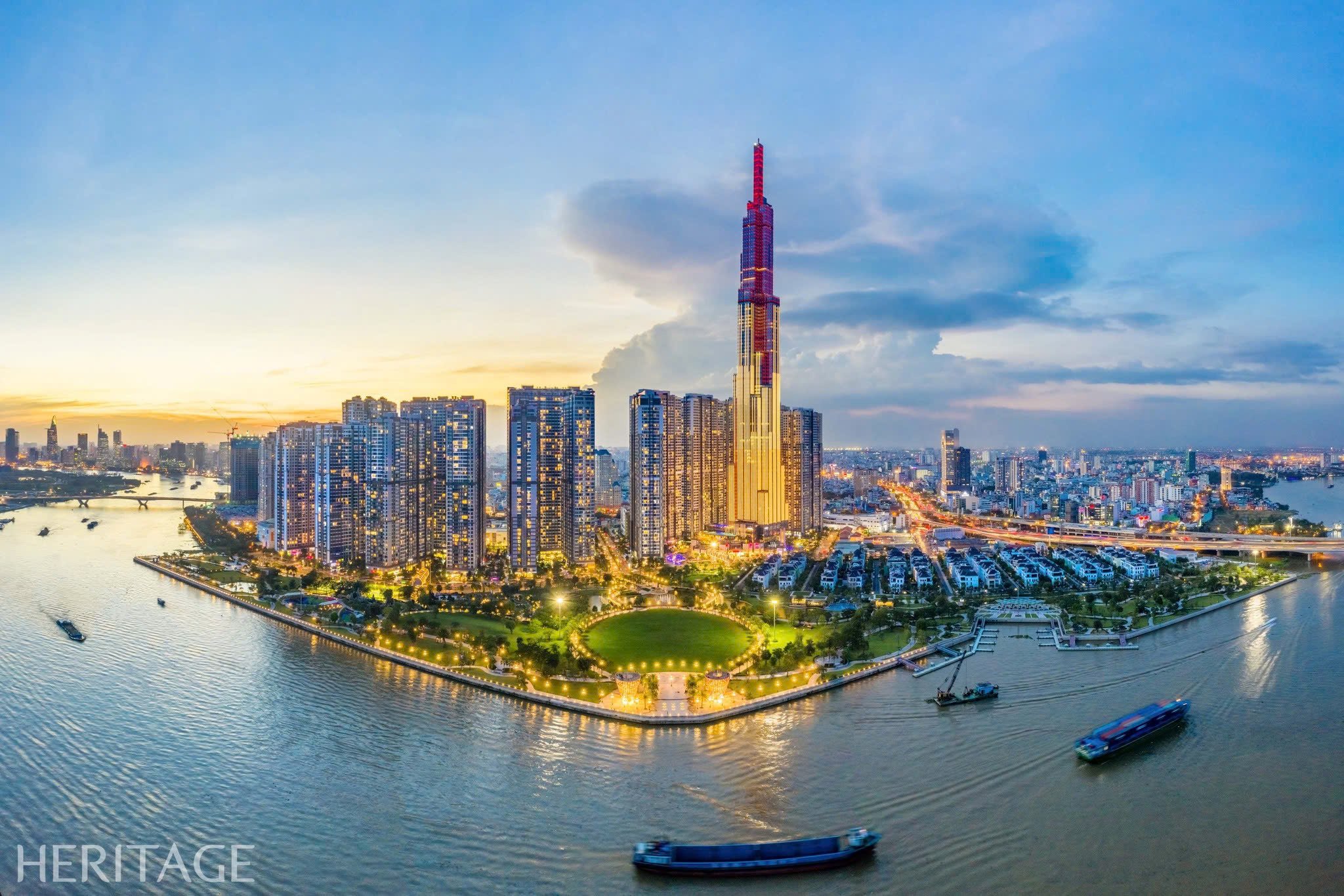











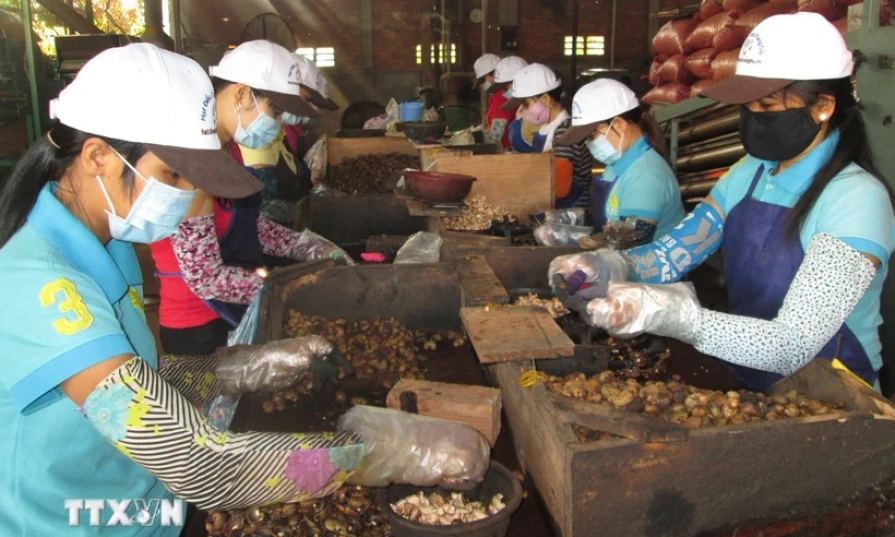

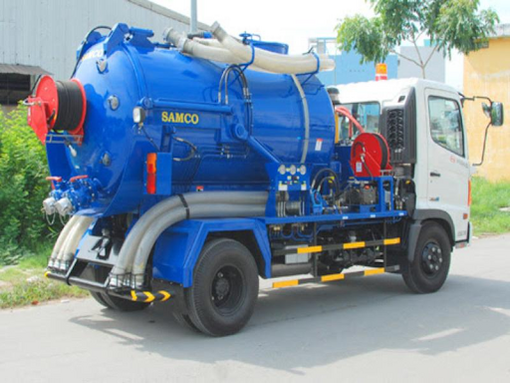














Comment (0)